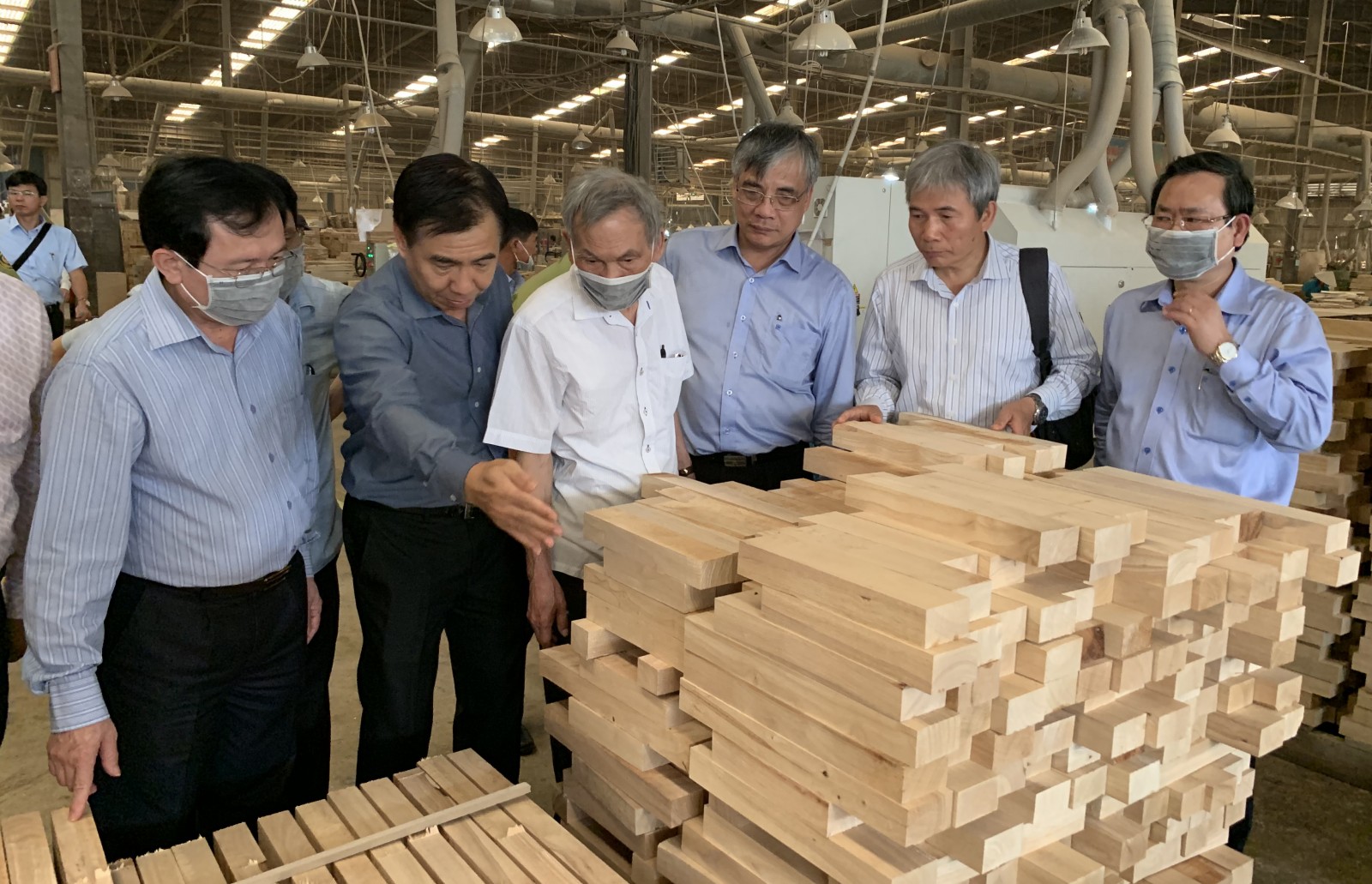Timber industry: Dynamic development, rational cooperation
Currently, domestic enterprises are having many advantages, due to the deep integration process, proactive responses of enterprises, support policies of the Government... However, currently, experts recommend that timber industry should strengthen linkages, be rational in selecting partners to ensure sustainable development.
Good growth
In the first 6 months of 2019, the export of timber enterprises in the province was estimated at USD 1,528 billion, up 16.3% over the same period, accounting for 10.9% total export turnover of the province. The main markets of timber export of provincial enterprises are the US, European Union, South Korea, China; the number of export orders increased averagely by 15% over the same period in 2018.
According to Huynh Quang Thanh, Advisor of Binh Duong Furniture Association (BIFA), although it has not been clearly shown on export turnover, many wood exporting enterprises have witnessed clearly influences of the US-China trade war. Specifically, more and more US customers learnt about and found information of Vietnamese businesses. In the coming time, if China's export volume to the US decreases while market demand is still there, it will be a great opportunity for other countries to be suppliers to the US, including Vietnam. At the present time, US businesses perhaps are looking for alternative suppliers, if Vietnamese enterprises prove their capacity and seize opportunities, they can increase their market share in the US.

Leaders of provincial Department of Industry and Trade and experts visit Mifaco Wood Processing Factory (Thuan An town).
However, timber companies are worrying about raw material sources, as raw materials account for 45% of product cost. Luu Phuoc Loc, Director of Mtrade Company (Tan Uyen town), said that in order to have a legal and stable source of timber, it was imperative to carry out a cooperative model of afforestation between wood processing companies and households. Recently, in our country, although this model has been formed, it has not met the demand.
In addition, when the European Union - Vietnam Free Trade Agreement (EVFTA) is signed, it requires enterprises to improve the quality according to European standards, including a clear origin of raw wood, environmental and labor conditions according to European standards. Therefore, it is difficult to determine risk category and risk zone when developing regulations to control the supply chain of imported timber. Not to mention, the domestic supply of wood materials must also comply with provisions of the agreement and will face problems as traders supplying timber can hardly satisfy regulations...
Be rational in cooperation
Despite the huge opportunity, experts noted that the US-China trade war could lead to a shift of investment from Chinese to Vietnam's wood processing industry. In the context of complicated US-China trade war, Vietnam's timber products exported to the US market are likely to be affected by US additional tax policies on Chinese exports, especially the risk of being investigated on tax avoidance of Chinese enterprises investing in Vietnam market.
Besides, the US Government is implementing many measures to stimulate domestic production growth including timber industry. Therefore, it is forecasted that processed wood products in particular and other commodities in general exported to the US market would be subjects to strict supervision in the coming time.
Recently, many foreign enterprises came to Vietnam to buy inefficient timber businesses. This is a problem for domestic enterprises, because when foreign enterprises buy Vietnamese companies and have production activities in Vietnam, the output of Vietnam at a certain time would increase dramatically. At that time, Vietnam's timber industry would definitely be affected.
Importantly, domestic timber companies should learn carefully about products of foreign companies in Vietnam, and whether their output could reach the threshold that can be sued for underselling by the US. In addition, the US Government also applies anti-evasion taxes. Accordingly, the US monitors movements of FDI enterprises in Vietnam. When discovering FDI enterprises apply Vietnamese origin to their export products to the US, a tax rate of 10% or more could be levied on Vietnam's wood products. Meanwhile, Vietnam's timber industry would suffer huge losses.
According to Nguyen Van Danh, Director of Department of Industry and Trade, to utilize advantages and overcome difficulties, respond promptly to unpredictable developments in the world market, in addition to the State’s support, wood processing enterprises need to be united. BIFA has done a good job of connecting members and fulfilled missions entrusted by members. In the coming time, BIFA needs to keep promoting their role as a bridge between businesses and authorities. More importantly, timber enterprises need to integrate their production activities for the big goal ahead; overcome barriers to forming production chains and linkages, stimulating the development of local timber industry.
Reported by Tieu My – Translated by Ngoc Huynh
 Support provided to facilitate social housing investment
Support provided to facilitate social housing investment
 Exports in year-end months see positive signals
Exports in year-end months see positive signals
 Thuan An city urban space to be more glamourous
Thuan An city urban space to be more glamourous
 Create conditions for businesses to invest in social housing
Create conditions for businesses to invest in social housing
 Halal market potentials open up novel opportunities to enterprises
Halal market potentials open up novel opportunities to enterprises
 Bac Tan Uyen district accelerates completion of annual targets and plans
Bac Tan Uyen district accelerates completion of annual targets and plans
 10th industry and trade conference of southern localities held
10th industry and trade conference of southern localities held
 SPC for manufacturing enterprises promoted
SPC for manufacturing enterprises promoted
 Province realizes the semiconductor industry development strategy
Province realizes the semiconductor industry development strategy
 Improving human resource quality to meet sustainable development needs
Improving human resource quality to meet sustainable development needs









